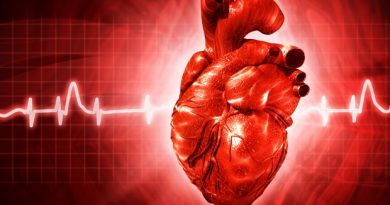Cancer: Men more likely to develop multiple tumours than women – which ones?
Naga Munchetty mortified as she laughs at brain cancer joke
We use your sign-up to provide content in ways you’ve consented to and to improve our understanding of you. This may include adverts from us and 3rd parties based on our understanding. You can unsubscribe at any time. More info
A new study conducted by the American Cancer Society has found while some genders can develop some cancers others can’t, such as men and prostate cancer and women with cervical cancer, one gender could be at greater risk of some cancers more than others.
Results from the research, published in the Cancer journal, have found men are more likely to develop a greater range of cancers than women regardless of other factors such as smoking, alcohol use, and other risk factors.
While the scientists don’t know why this is the case, they believe understanding this difference could become key to developing both preventative and reactive cancer-related health actions and treatments.
The conclusion was reached after analysis of 294,100 patients and the subsequent tracking of cancers which developed and their gender between 1995 and 2011.

During this 16-year period 17,951 cancers began in men while 8,742 developed in women; the only cancers where incidence was lower in men than women were thyroid and gallbladder cancers.
After analysis of these cases, it was concluded men had increased risk of developing most cancers after taking into account risk factors and exposure to carcinogens.
Dr Sarah Jackson of the National Cancer Institute said of the results: “Our results show that there are differences in cancer incidence that are not explained by environmental exposures alone. This suggests that there are intrinsic biological differences between men and women that affect susceptibility to cancer.”
Subsequently, the authors say more research is required into why there are differences between men and women regarding cancer risk, noting: “Strategically including sex as a biological variable should be enforced along the whole cancer continuum from risk prediction and cancer primary prevention, cancer screening and secondary prevention, to cancer treatment and patient management.”
What are the main symptoms of cancer?
The main symptoms of cancer depend on the type of cancer in question so prostate cancer will cause different symptoms to that of stomach or pancreatic cancer.
However, this isn’t to say there isn’t some overlap between various forms of the disease; some cancers can show similar symptoms.
The NHS say: “It’s important to be aware of any new or worrying symptoms. Although it’s unlikely to be cancer, it’s impocrtant to speak to a GP so they can investigate.”
However, the NHS also lists several symptoms to look out for, including:
• Changes in bowel habits
• Bloating
• Bleeding
• Coughing
• Chest pain
• Breathlessness
• Lumps
• Moles
• Unexplained weight loss
• Tummy or back pain
• Indigestion and heartburn
• Itchy or yellow skin
• Feeling tired and unwell.

Unexplained weight loss is one of the most common cancer symptoms to come up across the board.
The NHS say: “You should speak to a GP if you’ve lost a lot of weight over the last couple of months that cannot be explained by changes to your diet, exercise, or stress.”
However, unintentional weight loss does not necessarily mean someone has cancer, it can be the sign of a range of conditions.
IBS, depression, anxiety, coeliac disease, diabetes, heart failure, and others all have unintentional weight loss as a symptom.

Does this mean this symptom should be a concern?
While weight loss may help with someone’s physique, if someone doesn’t know why its happening, that should be cause for concern.
However, neither should it be reason to panic, it is merely a sign from the body that something is off.
If the weight loss continues for a sustained period of time, despite a lack of changes in eating habits or exercise, seeing a GP is recommended.
Furthermore, the sooner the cause is identified, the sooner the right treatment can begin.
Source: Read Full Article



